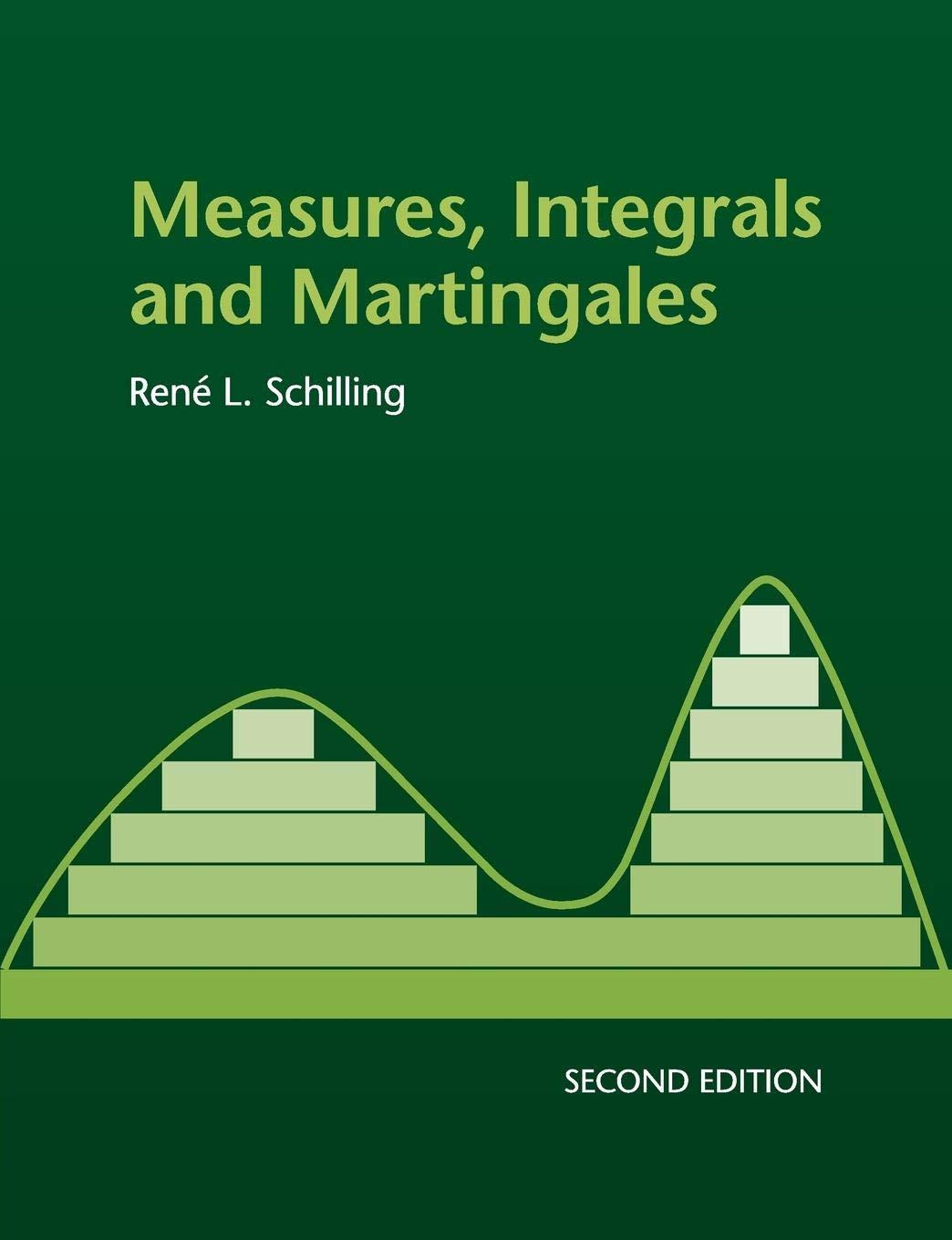Egorov's theorem. Let ((X, mathscr{A}, mu)) be a finite measure space and (f_{n}: X ightarrow mathbb{R}, n
Question:
Egorov's theorem. Let \((X, \mathscr{A}, \mu)\) be a finite measure space and \(f_{n}: X ightarrow \mathbb{R}, n \in \mathbb{N}\), a sequence of measurable functions. Prove the following assertions.
(i) \(C_{f}:=\left\{x \in X: f(x)=\lim _{n} f_{n}(x)ight.\) exists \(\}\)
\[=\bigcap_{k=1}^{\infty} \bigcup_{\ell=1}^{\infty} \bigcap_{m=\ell}^{\infty} \bigcap_{n=\ell}^{\infty}\left\{\left|f_{m}-f_{n}ight| \leqslant \frac{1}{k}ight\}\]
(ii) Assume that \(\mu\left(X \backslash C_{f}ight)=0\), i.e. \(f_{n}(x) ightarrow f(x)\) for all \(x\) outside a null set. Then we have for the sets \(A_{n}^{k}:=\bigcup_{\ell=1}^{n} \bigcap_{m=\ell}^{\infty}\left\{\left|f_{m}-fight| \leqslant \frac{1}{k}ight\}\)
\[\forall \epsilon>0 \quad \forall k \in \mathbb{N} \exists n(k, \epsilon) \in \mathbb{N}: \mu\left(X \backslash A_{n(k, \epsilon)}^{k}ight) \leqslant \epsilon 2^{-k}\]
(iii) Theorem (Egorov). Let \((X, \mathscr{A}, \mu)\) be a finite measure space and \(\left(f_{n}ight)_{n \in \mathbb{N}}\) a sequence of measurable functions which converges pointwise (everywhere or outside a null set) to a function \(f\). Then there is for every \(\epsilon>0\) a set \(A_{\epsilon} \in \mathscr{A}, \mu\left(X \backslash A_{\epsilon}ight) \leqslant \epsilon\), such that \(\lim _{n ightarrow \infty} \sup _{x \in A_{\epsilon}}\left|f_{n}(x)-f(x)ight|=0\), i.e. \(f_{n} ightarrow f\) uniformly on \(A_{\epsilon}\).
(iv) The finiteness of \(\mu\) is essential for Egorov's theorem.
[ use the counting measure on \(\mathbb{N}\) or Lebesgue's measure on \(\mathbb{R}\).]
Step by Step Answer:






